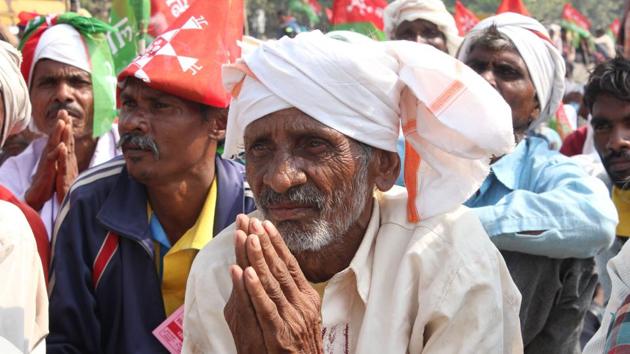Being left or right is never simple in India, writes Mark Tully
Waiving loans is not a sound economic policy because it goes against the fundamental tenet of banking that money lent will be repaid with interest
One of the more unlikely relationships between leaders on the international summit circle was the friendship between Margaret Thatcher and Indira Gandhi. It certainly surprised Margaret Thatcher’s husband Dennis. During one of the couple’s visits to India he said to me, “I can’t understand it. They get on so well but she is a Leftie isn’t she?” As we look back this New Year on the recent state elections and look forward to next year’s general election we might consider why the answer to Dennis’ question is not as straightforward as he imagined, why even under Indira India was not divided between the left and the right.

India has never had a right wing party for socialists to do battle with except for the comparatively short-lived Swatantra party. One obvious reason for this is the size of the poor vote. It is so large that it cannot be ignored. It’s equally true to say that after Indira Gandhi’s socialist splurge, India has not had a doctrinaire socialist party. At the turn of the century, the economist, Pranab Bardhan, wrote an essay which suggests why this is so. He spoke of India’s “passion for group equity, the aspiration to compensate for centuries of slights and indignities”, and ventured to suggest that “a large part of mass political culture in India can be broadly described as equity-centric and in this respect largely anti capitalist though not pro-socialist.” The divisions in the poor vote created by the slights and indignities of he past, particularly the caste system, have meant there has been no coherent working class to fight for equity in accordance with socialist principles and policies . Not surprisingly many of the poor have chosen caste parties to unite them in their struggle against inequality and indignity.
However it ‘s not just caste which brings Indian voters together to fight against inequality. The demand of farmers for a fair reward for producing the nation’s food was the dominant economic issue of the State Elections and we will certainly hear a lot about them in the coming general election. The farmers came together as a group not as socialists and they were concerned only with their own issues.
Governments tend to react with short term, ad hoc, measures to outbursts of “India’s passion for group equity” and ignore the underlying causes of the anger. Newly-elected Congress state governments have already responded to the political pressure from the farmers to waive their loans and three BJP governments have followed suit. If the history of waivers is anything to go by, politicians will hope this satisfies the farmers and continue to ignore the root causes of the farmers’ distress. The distress wouldn’t exist today if governments had attended to basic problems such as prices, marketing, and storage.
Because governments respond to group anger with ad hoc concessions, they ignore economic orthodoxy whether of the left or the right and often damage the economy. Waiving loans is not a sound economic policy because it goes against the fundamental tenet of banking that money lent will be repaid with interest. As a result it has adverse consequences for banks and their farmer borrowers. Waivers all too often encourage farmers to delay repayment of their loans in the hope they will be waived. The banks then react by being reluctant to lend, and farmers are forced to borrow from traditional lenders at exorbitant rates of interest. The economy suffers from the government bailing the banks out.
So should India be socialist in practice not just in name? Maybe it would be a mistake to tie India too tightly to an economic doctrine. Indira Gandhi’s licence permit raj demonstrated the bureaucratic excesses that could gave rise to. But I do think whatever government comes to power next year should persevere with the implementation of some socialist policies such as raising the tax-GDP ratio to distribute wealth more equally, and with administrative reforms. They are necessary to improve the effectiveness and equalising effect of socialist-style welfare schemes which already exist like MGNREGA and Jan Dhan.
The views expressed are personal






